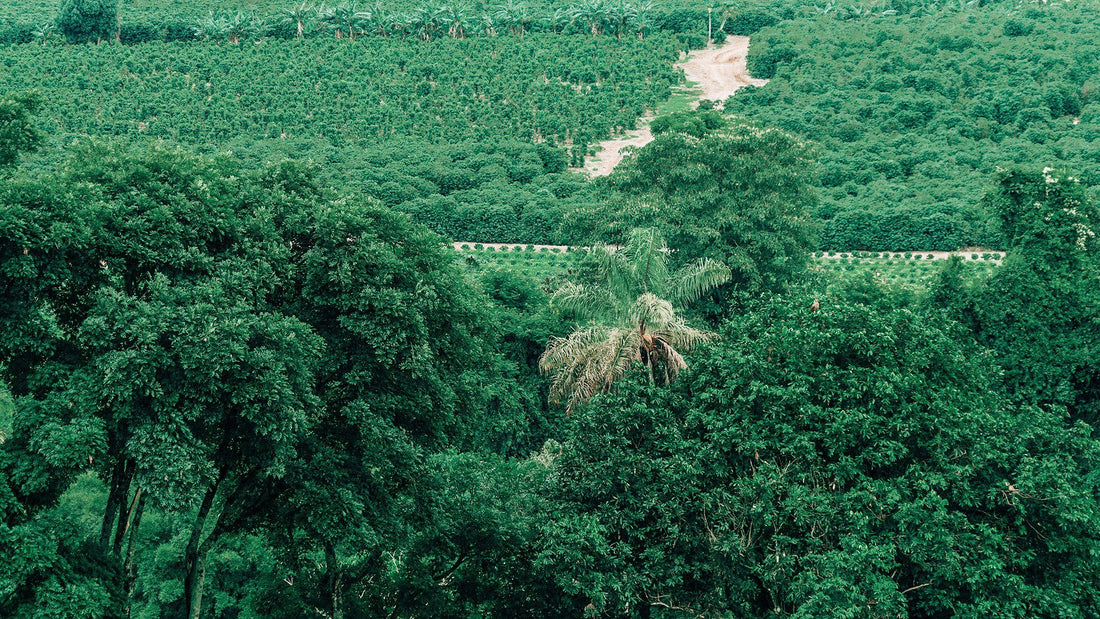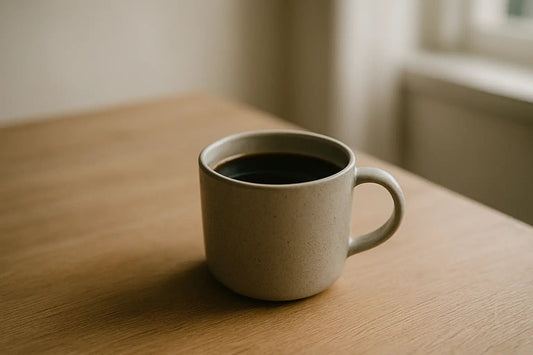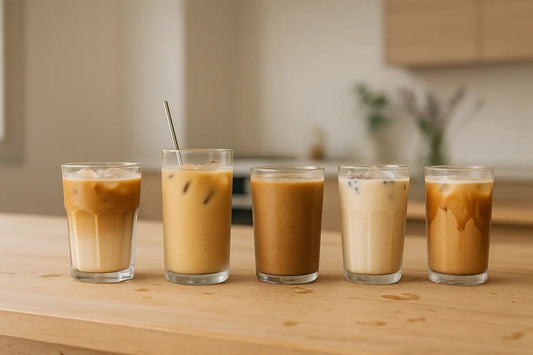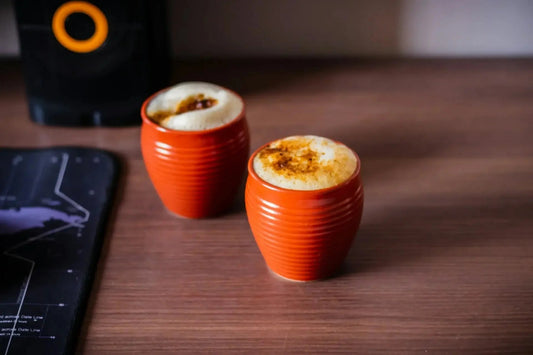
Brazilian Coffee
James RocheIntroduction
You know, when you think of coffee, chances are Brazil pops into your head pretty quickly. And for good reason! It's the undisputed king of coffee production, pumping out more beans than any other country on the planet. It’s like Brazil is to coffee what Italy is to pasta – a match made in heaven.
But Brazil isn't just about quantity, it's about quality too. We’re talking vast landscapes, rich soil, and a climate that’s practically designed for growing coffee beans. From the rolling hills of Minas Gerais to the sprawling plantations of São Paulo, Brazil offers a diverse range of growing conditions. This means one thing, a whole lot of different flavours waiting to be discovered.
So, get ready to dive into the world of Brazilian coffee. We'll go over Brazilian coffee, discuss its history and explore the different flavours.
History of coffee in Brazil
Brazil wasn't always the coffee giant we know today. It all started in the 1700s with a bit of botanical espionage. Legend has it, a Brazilian soldier smuggled coffee beans out of French Guiana. These precious seeds were the beginning of Brazil's coffee journey. Growing coffee in a new land wasn't easy. Early Brazilian farmers faced countless challenges, from unfamiliar pests to tricky soils. But with determination and a little luck, they began to crack the code.
Brazil's transformation from a coffee newcomer to the global kingpin is an incredible story. A combination of factors fueled this growth. The country's vast, fertile lands provided the perfect canvas for coffee plantations. Add to that a climate that's practically tailor-made for coffee beans, and you've got a winning formula. Plus, Brazil had a workforce ready to tackle the challenges of large-scale farming. As demand for coffee soared worldwide, Brazil was there to meet it, solidifying its position as the undisputed coffee champion.
The Terroir and Flavours of Brazil
Brazil is a coffee lover's paradise, boasting a vast and diverse landscape that translates into a stunning array of coffee flavours. From the high altitudes of the Cerrado to the coastal regions of São Paulo, each region offers unique growing conditions that shape the character of the beans.
The Cerrado, a vast savanna-like plateau, is renowned for producing coffees with clean, bright acidity and nutty undertones. Minas Gerais, Brazil's largest coffee-producing state, offers a broader spectrum of flavors, from the sweet and fruity beans of the Sul de Minas to the more robust and chocolatey profiles of the Cerrado Mineiro. Meanwhile, São Paulo, known for its large-scale production, typically delivers coffees with a smooth, balanced cup.
But what truly sets Brazilian coffee apart is the interplay of factors that influence its taste. Altitude plays a crucial role, with higher-grown beans often exhibiting greater acidity and complexity. The type of soil, whether rich volcanic or nutrient-poor, impacts the bean's development. And of course, climate, with its balance of sunlight, rainfall, and temperature, significantly affects the coffee's flavour profile. Finally, the processing method, whether washed, natural, or pulped natural, dramatically alters the cup's characteristics.
It's this intricate combination of factors that gives Brazilian coffee its distinctive identity, offering a world of flavours waiting to be explored.
The Heart of Brazilian Coffee - The Farms and People
The heart and soul of Brazilian coffee lies in the hands of its farmers. Their days are marked by a demanding rhythm of planting, tending, harvesting, and processing. It’s a life intertwined with the land, facing challenges like unpredictable weather, pests, and fluctuating market prices. Despite these hurdles, Brazilian coffee farmers are renowned for their resilience and passion.
Sustainability has become a cornerstone of Brazilian coffee production. Many farmers are adopting eco-friendly practices to protect the environment and ensure the long-term viability of their farms. From shade-grown coffee to organic cultivation, there's a growing commitment to sustainable agriculture.
Cooperatives and associations play a vital role in supporting Brazilian coffee farmers. These organisations provide essential services like credit, technical assistance, and market access. By pooling their resources, farmers can achieve economies of scale and improve the quality of their coffee.
Coffee is deeply ingrained in Brazilian culture. It’s more than just a beverage; it's a social lubricant, a source of comfort, and a symbol of hospitality. From bustling city cafes to small-town bodegas, coffee is always on hand. The aroma of freshly brewed coffee fills the air, inviting people to gather and connect.
Exploring the World of Brazilian Coffee
Brazil is renowned for its coffee production, but not all Brazilian coffee is created equal. At the heart of the distinction lies the type of bean. Arabica, the superior bean, is the star of Brazil's coffee scene. Known for its complex flavors, lower caffeine content, and delicate acidity, Arabica is the foundation of the country's coffee reputation. Robusta, while more resilient and higher in caffeine, often lacks the nuanced taste profile that Arabica offers.
While single-origin coffees showcase the unique characteristics of a specific region, Brazil is celebrated for its blends. Years of expertise in coffee cultivation and processing have allowed Brazilian coffee producers to master the art of blending, creating harmonious cups with consistent flavour profiles. This approach has been instrumental in solidifying Brazil's position as a global coffee leader.
Within the realm of Arabica, Brazil boasts a diverse range of varieties. Bourbon, a classic choice, offers a balanced cup with notes of sweetness and acidity. Mundo Novo, a high-yielding hybrid, delivers a milder, sweeter profile. Catuai, known for its resistance to diseases, produces coffees with bright acidity and clean flavours. These varieties, among others, contribute to the rich tapestry of Brazilian coffee, offering something to suit every palate.
Brazil: A Coffee Lover's Paradise
From its humble beginnings as a smuggled seed, Brazilian coffee has blossomed into a global phenomenon. We’ve explored the country’s rich history, from its early struggles to its position as the world’s coffee king. We’ve delved into the diverse landscapes that produce an equally diverse range of flavours, from the bright acidity of Cerrado beans to the smooth, balanced cups of São Paulo. We’ve discussed the passionate farmers who cultivate these beans and learned about their dedication to sustainability. And we’ve discovered the nuances of Brazilian coffee, from the superiority of Arabica beans to the art of blending.
Brazilian coffee is more than just a beverage; it's a cultural touchstone, a product of history, and a testament to human ingenuity. Every cup holds a story, from the farmer’s hands to your own. So, next time you drink a cup of Brazilian coffee, take a moment to appreciate the journey it has taken.



